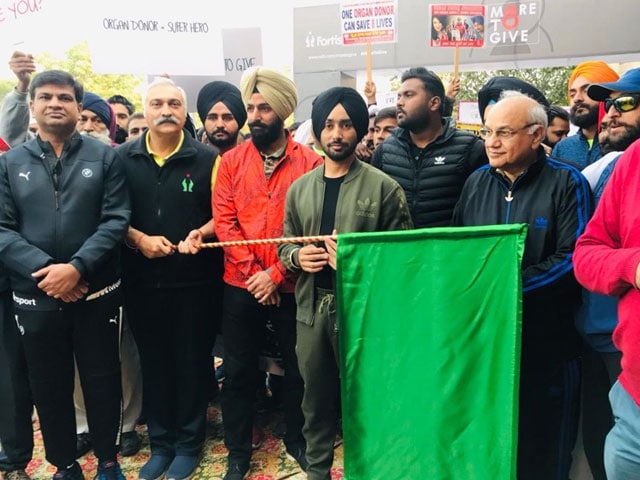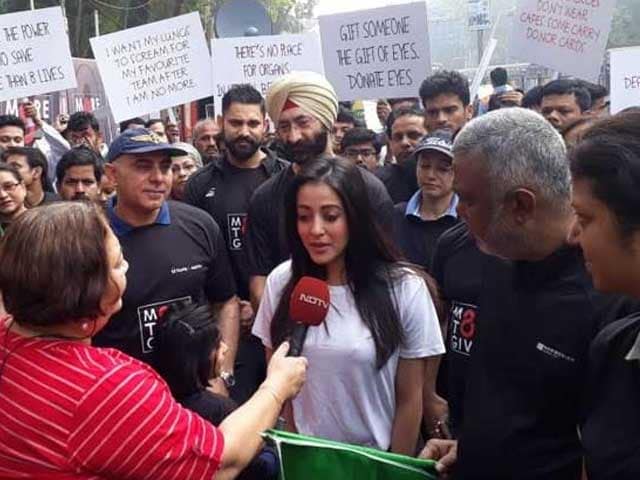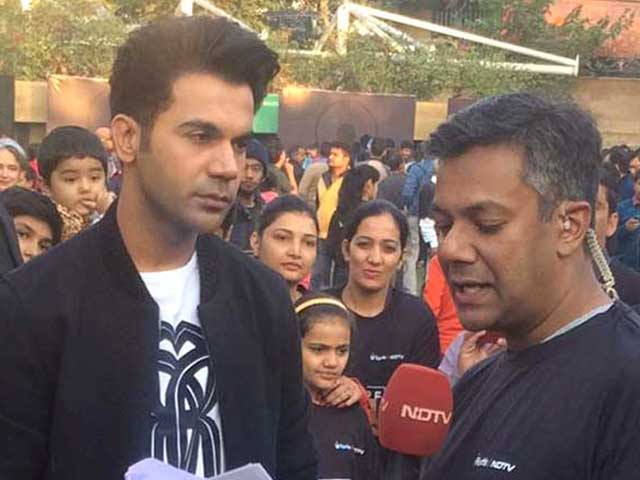
New Delhi: India has more than a billion people but just one organ donor for every 2 million of its population. This is amongst the lowest organ donation rates in the world and one of the biggest reasons for this is the lack of awareness about the cause.
The only way bolster these figures is by raising ground level awareness, dispelling misinformation and promoting people to register themselves as potential organ donors after death. The one point-person who can effectively do this is a Transplant Coordinator – a person who broaches the issue of organ donation with the family of a brain dead patient.
(Also Read: In Numbers: The Status Of Organ Donation In India)
This is why, the National Organ & Tissue Transplant Organisation (NOTTO), has listed the training of transplant coordinators as one of its topmost priorities.
“Transplant coordinators are a very important part of the transplant process because they are the ones who make the patient’s relatives understand why they should donate,” says Dr. Jagdish Parasad, Director General of Health Services, “The whole system depends on them”.
Essentially, a transplant coordinator’s role requires them to oversee the entire process of transplantation— right from talking to the family, counselling them, giving them the right information and securing the donation to ensuring the smooth transit of the harvested organs to their final destination.

The most challenging aspect of the job, according to Trilly Mathew who works as a transplant coordinator at Fortis Gurgaon, is that it is an extremely sensitive subject considering that the families are grieving are in need of counselling.
“We can never talk about the subject in the first go. We have to play multiple roles. In the first meeting, we never bring up the subject. Instead, we counsel them and help them understand what brain death is, and come to terms with it,” she explains.
“There are certain phases any family can go through—anger, disbelief, irritability, which means that we have to be careful about when we ask them to consider donation. Often we follow the Ramachandra protocol in which we first ask for an eye because there is already awareness about that. If the family agrees, we ask them to consider donating other organs. If they don’t, we drop the subject,” says Mathew.
Families have all kinds of concerns that need to be addressed such as why should they donate or would the body be disfigured? All these need to be handled by the transplant coordinator which means that it is essential to have competent personnel.
(Also Read: Organ Donation: Don’t Let These Myths Confuse You)
NOTTO, which is the apex organization on organ donations in the country, says that it has registered a total of 281 transplant coordinators. Considering the fact that there are currently around 301 hospitals around the country which perform organ transplants, and that, according to Dr. Prasad, each hospital should eventually have around 6 to 8 transplant coordinators, this number is quite poor.
For now, NOTTO’s aim is to ensure that each hospital has at least one or two trained transplant coordinators.
“The Government of India is funding every (government) medical college to train transplant coordinators who can actively participate in convincing people. In fact, we are also giving training sessions to private hospitals free of cost,” says Dr. Prasad.
These training sessions span the course of two weeks and are funded directly by NOTTO. Most recently, 72 transplant coordinators underwent training in Jaipur two months ago, NOTTO’s director, Dr. Vimal Bhandari tells NDTV.
Some NGOs are also chipping in, for instance, the MOHAN Foundation runs a ‘Transplant Coordinators Training Program’ which is a structured course that aims to train individuals to “manage cadaver organ donation procedures efficiently and counsel families in their moment of extreme grief”.
Apart from this, NOTTO also plans to provide “organ retrieval training” first to medical colleges and later to district and private hospitals as well as workshops to sensitise ICU doctors about organ donation.








